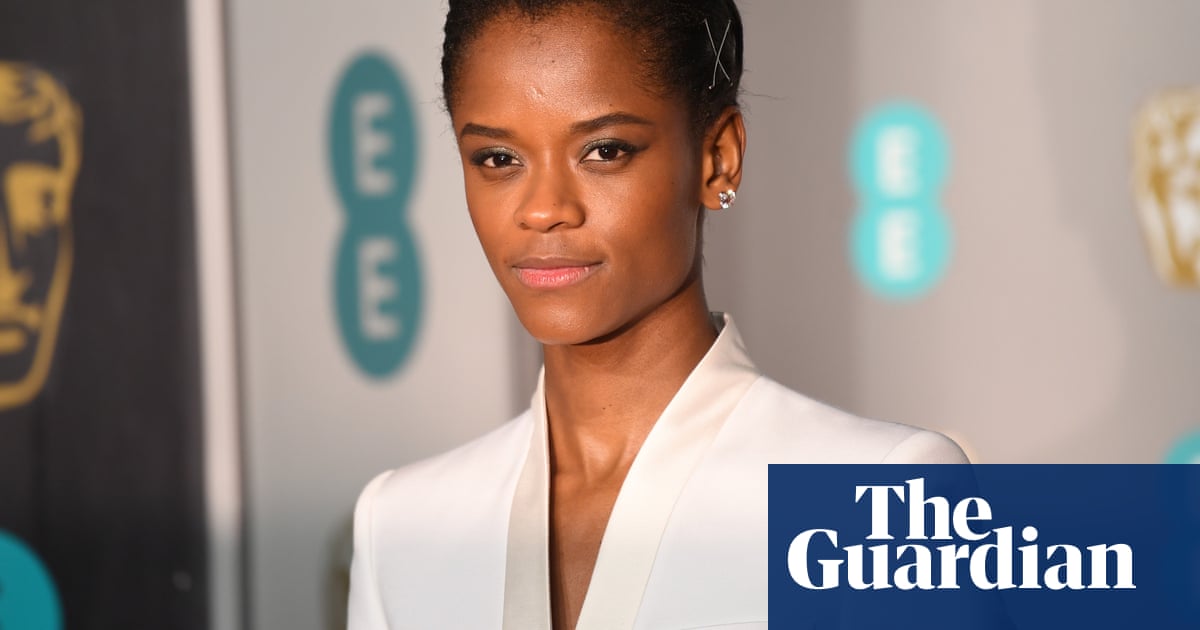The actorLetitia Wrighthas spoken about the “huge burden” of representation for black film-makers telling stories about black lives, as she prepares to unveil her directorial debut.
The 31-year-oldBlack Pantherstar stepped behind the camera for Highway to the Moon, a short film inspired by the killing of her friend’s brother and the death of the model Harry Uzoka.
The short film – written, directed and produced by Wright – will have its world premiere on Saturday at the SouthLondonfilm festival. Kenyah Sandy and Lamar Waves star in the coming-of-age fantasy that explores the lives of young black boys whose futures have been violently cut short.
Wright described the film as a spiritual and visual journey rooted in themes of black youth joy, love and unity. It imagines what happens to the souls of young black boys after death, whether through violence or mental health struggles, across three realms: Earth, the “in-between” and space.
“It came from that place of shock that people that I knew, particularly my friend’s brother Junior, weren’t here any more and it was over a disagreement,” she said. “His life is gone and just seeing that pain of my friend and her family and her mum processing it and how nobody would want to come forward to say who did it. Justice hasn’t come to that household.”
The short film, commissioned through WeTransfer’s arts platform, WePresent, is Wright’s response to the knife crime crisis in London. But she is clear that it deliberately avoids tired stereotypes, noting that in several stabbing cases, gangs were not involved at all.
“It just made me intrigued about their spirits and wanted to write about it and do it from a different lens, a different angle than what we’re used to seeing,” Wright said.
Speaking to the Guardian, Wright reflected on the pressure placed on black film-makers to speak for an entire community and to meet everyone’s expectations.
She said: “I felt that from just even my acting career, the particular roles I want to take and the particular roles that I do take. I do weigh it up – I know how much representation means and the power of image, the power of what you see and what you hear, and how it can influence. So that has been something that has been a challenge for me. Whether it’s writing it, whether it’s directing, whether it’s producing, whether it’s the casting of it all.
“[There’s] that thing in the back of your mind feeling like, dang, is someone’s going to misinterpret my intentions?” Wright added. “And that has already happened. But I also have to let go of it because it’s a huge burden to bear and I cannot control everybody’s feelings. That’s the one thing that I’ve been able to look at just in a mature way and just say, I cannot control how everyone’s going to take this. All I can do is focus on my intention.”
For this film, that intention is to amplify a message of love and unity. Wright said: “I want this to really hit home with our boys when they watch it. It’s like, dang, I’m meant to be here. He’s meant to be here. We’re meant to have a good quality of life.”
To those who may criticise her for highlighting knife violence, she said: “There is not a single knife that you see in this film. It’s just the actions of it. It’s just the aftermath of it.”
Wright admits she was scared about stepping into directing, describing it as a steep learning curve. “It had its difficult moments. Some days I wanted to give up, but the boys, honestly, it’s the young boys and this story that just kept me going.”
To prepare, she enrolled in directing and producing courses, all while continuing her acting work. “Overall, it was a great experience, but I was definitely in the trenches,” she joked. “But in the end, I made something that I’m really proud of.”
